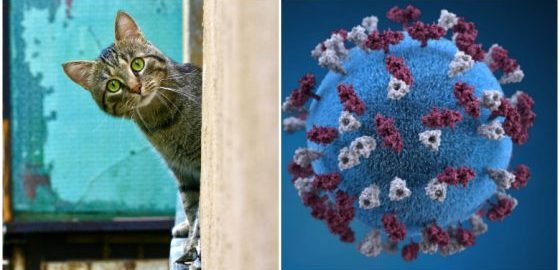The UK Detects Its First Case of a Deadly Cat Virus

©️ Bogdan Farca / CDS/ Unsplash
A mutation of a cat virus (feline infectious peritonitis, FIP), responsible for the deaths of thousands of cats in Cyprus has now surfaced in the UK reports Sky News. This outbreak, linked to a formidable strain called F-CoV-23, is causing heightened concern among veterinary experts due to its rapid transmission and severe impact on infected felines.
Understanding FIP and Its Transmission

FIP, a fatal disease caused by feline coronavirus (FCoV), poses a significant threat if left untreated. For Sky News, Dr. Jo Lewis, a feline veterinary surgeon, underscores the virus’s rapid spread in close cat quarters, such as rescue centers. Importantly, she warns that humans can also get the virus through everyday items like grooming brushes, cat litter scoops, and even on their hands and feet.
UK Confirms First Case
Vets in the UK have officially confirmed the first case of this deadly feline coronavirus. Professor Danielle Gunn-Moore from Edinburgh University described the new strain, F-CoV-23, as “particularly nasty” Sky News reports. Diverging from the traditional FIP, F-CoV-23 affects all cells rather than staying localized. This raises concerns as cats directly pass the virus among themselves without needing individual mutations.
Potential for Future Outbreaks
Speaking to Sky News, Professor Gunn-Moore anticipates the emergence of similar cases and does not deem the isolated UK case an anomaly. She expresses major concerns about the potential spread of the virus, especially among cats rehomed from Cyprus or residing near shelters receiving rescue animals from the affected region.
Symptoms and Urgency of Treatment
The symptoms of F-CoV-23 include a distended belly, breathing difficulties, loss of appetite, wobbliness, or seizures. Professor Gunn-Moore emphasizes that cat owners should remain vigilant. She underscores the paramount importance of early detection. For Fox News, she stresses that the virus can be treated with two Covid-19 antivirals, proven effective against the illness. She also highlights the urgent need for early detection and treatment.
Up to 300,000 Cats in Cyprus!

The crisis in Cyprus, renowned as the “island of cats,” commenced in January, claiming the lives of thousands of felines. Reports suggest that an alarming number, potentially up to 300,000 cats, succumbed to the virus this year alone. In response to the severity, a human COVID-19 treatment was introduced for infected cats in August, yielding positive results.
What sets the Cyprus strain apart is its recombination of feline and canine coronaviruses, resulting in the formidable F-CoV-23 strain. This strain’s ability to spread throughout the body, causing fatal consequences for infected cats, is particularly concerning. Unlike traditional FIP, where individual mutations lead to transmission, F-CoV-23 is alarming as cats shed the same virus, facilitating direct transmission.
Speculation arises about the genetic makeup of Cyprus cats potentially contributing to the efficient spread of the virus. Professor Gunn-Moore expresses hope that specific genetics may play a role in limiting the virus’s spread in other countries. However, concrete evidence supporting this hypothesis is currently lacking.
Urgent Call to Action
Strongly urging UK cat owners to remain vigilant, especially those with cats rehomed from Cyprus or living near shelters receiving rescue animals from the affected region. Remember that early detection and treatment are crucial in mitigating the impact of this “pretty terrifying” cat virus. As experts closely monitor the situation, they call for a unified effort to address and contain this emerging feline crisis.
You might also want to read: Why Do Cats Love Tuna So Much?


